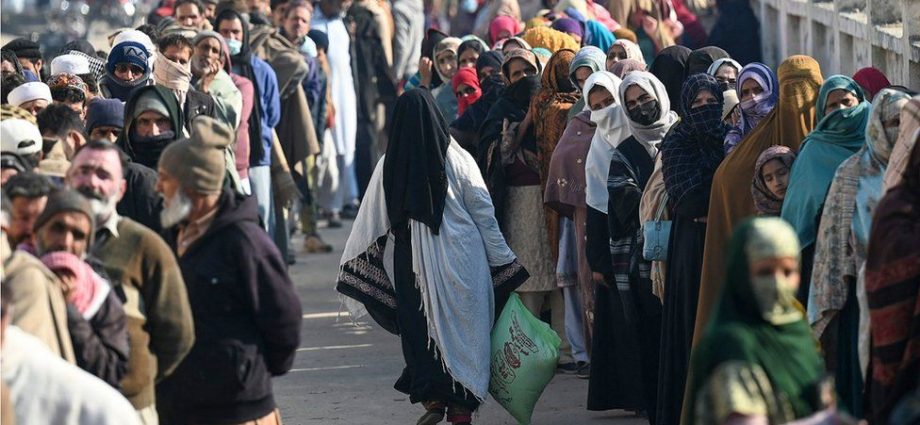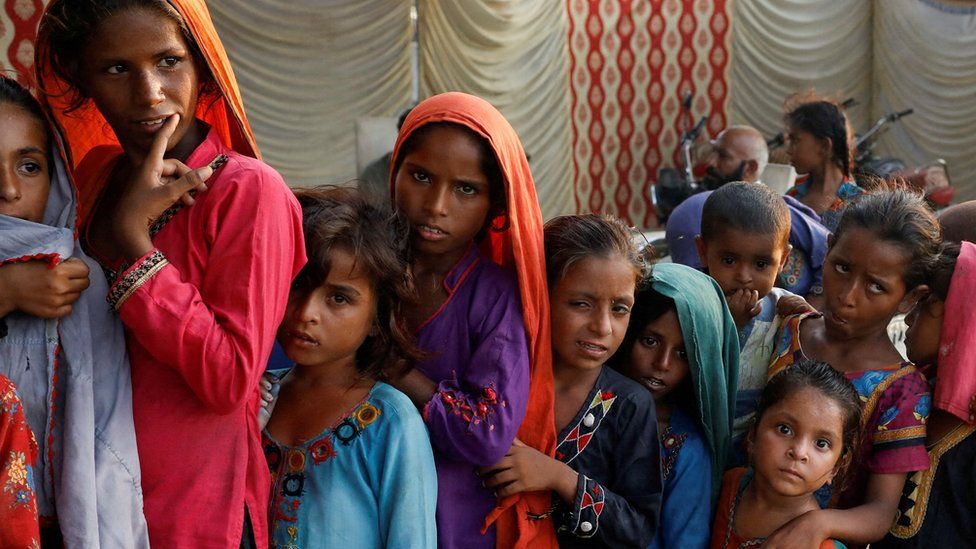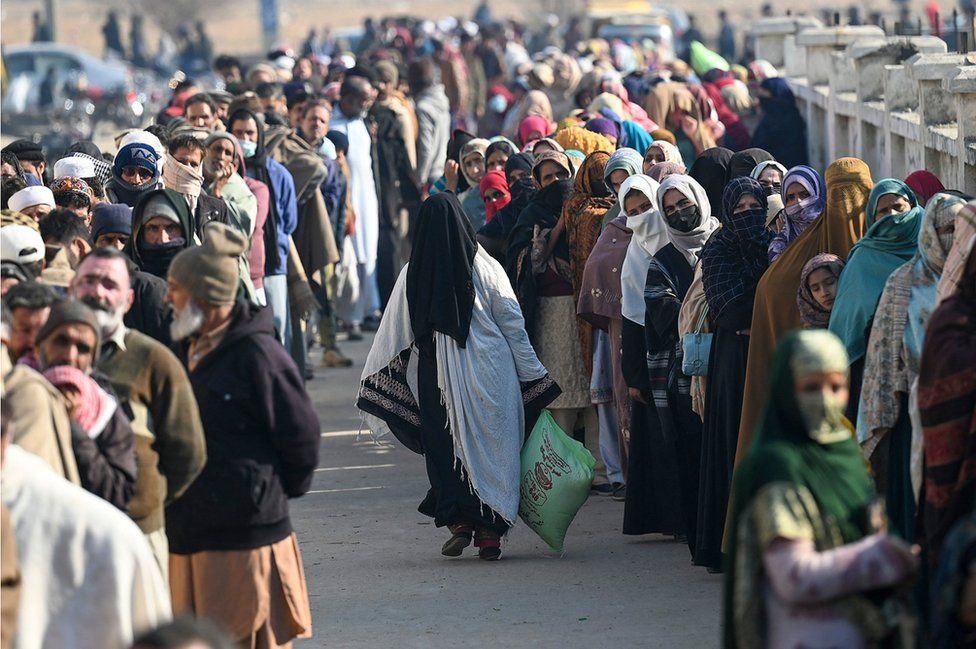
Pakistan is holding last-ditch talks with the International Monetary Fund (IMF) to secure help to stem a deepening economic crisis that has all but emptied its foreign exchange reserves.
It has enough dollars to cover less than a month of imports at normal levels and is struggling to service sky-high levels of foreign debt.
An IMF team is due to leave the country on Thursday after 10 days of talks with the government aimed at unlocking vital international funds.
In recent weeks, annual inflation soared to over 27%, its highest since 1975, and there are mounting fears for the economy in a pivotal election year.
This week the rupee sank to a historic low of 275 to the dollar, down from 175 a year ago, making it more expensive for Pakistan to buy and pay for things.
The lack of foreign currency is one of the most pressing of Pakistan’s problems.
Factories like Jubilee Textiles in Faisalabad, the industrial heartland of Pakistan, were shut recently – not by the frequent power cuts that have dogged Pakistan for years, but because they couldn’t get hold of dollars to pay for the goods they need.
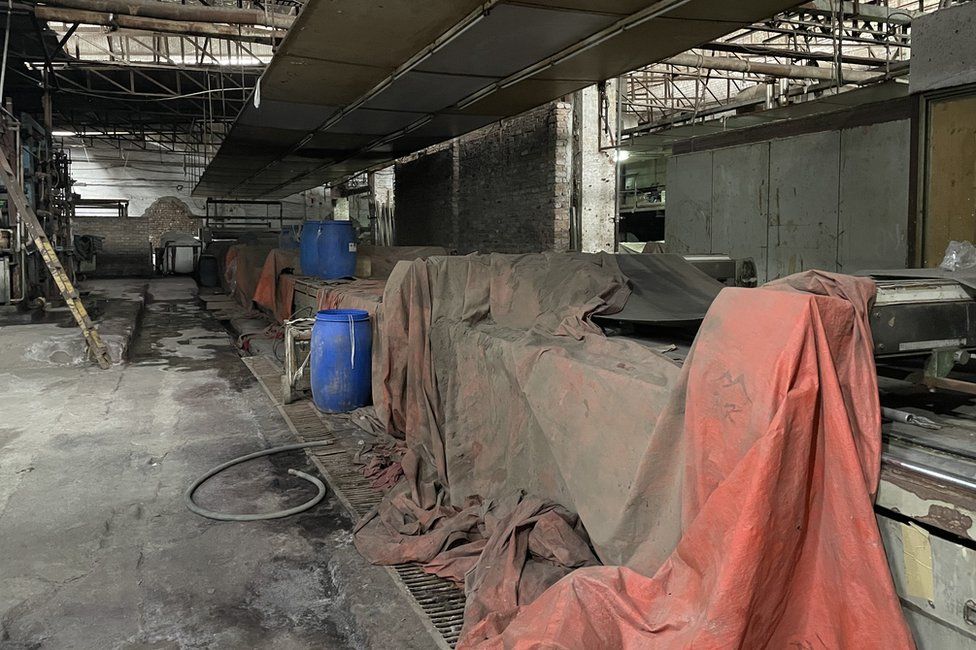
“If we can’t import, how can we manufacture? We’ve already made a loss,” its manager Fahim told the BBC, adding that all its 300 workers had been sent home.
Jubilee’s printing machines have only just restarted after shutting last month. Piles of white cotton sheets sat in iron tubs, covered by a light coat of brick dust, when the BBC visited, with the only sound the drip, drip of an industrial washer.
Walking through the network of frozen machines, Fahim said the factory had run out of the dyes they import from China, not because they weren’t available, but because they say their bank wouldn’t clear the dollars to pay for them for weeks.
According to analysts, the government had been holding the bank’s exchange rate artificially high behind the scenes which was contributing to the lack of dollars in the system. At the end of last month, they allowed it to drop, which could help some businesses, but also push prices up.
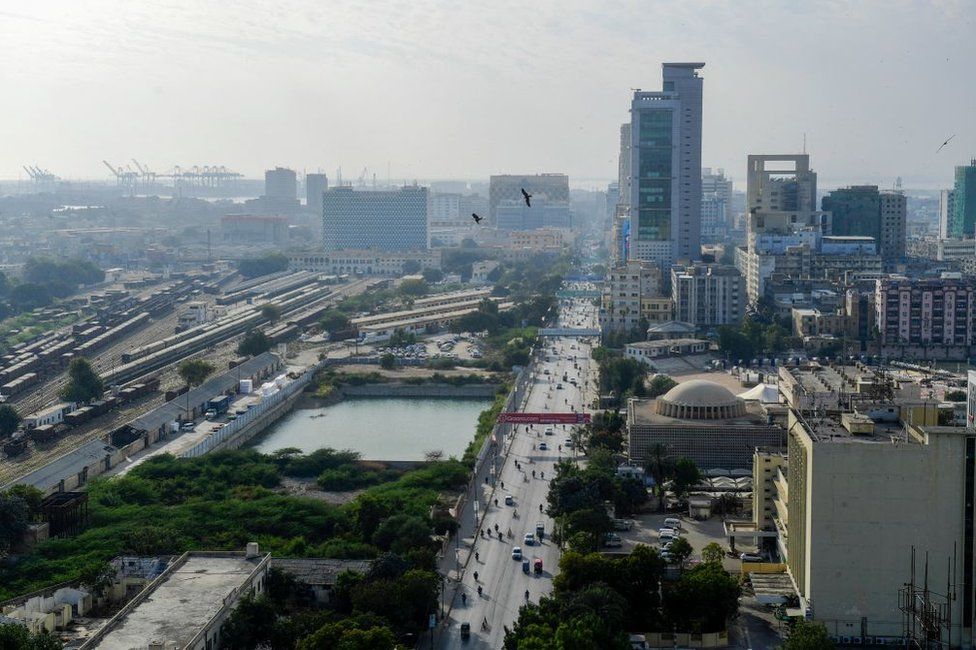
Businesses and industries across Pakistan said they have had to slow or stop work while they also wait for goods they have imported that are currently stacking up in ports.
In late January, a government minister told the BBC that there were more than 8,000 containers piled up in Karachi’s two ports, containing goods from medicine to food. Some of that has started to clear, according to local media reports, but much is still stuck.
A perfect storm of problems
Pakistan, like many countries, is suffering as a result of the coronavirus pandemic and Russia’s invasion of Ukraine, following which global fuel prices have soared. Pakistan relies heavily on imported fossil fuels and importing food has also become more expensive.
If the rupee depreciates, fuel costs more, with knock-on effects for goods that are transported or manufactured. The government recently increased fuel prices by over 13% but says it’s not planning any more.
Add to this the cost of last year’s floods, which the UN says caused damage of more than $16bn. Huge areas of Pakistan were submerged, destroying farmland and disrupting its ability to produce food. Basics like wheat and onions have skyrocketed in price.
All this comes in an uncertain and febrile political climate – an election is due by the end of the year.
As for bailouts, Pakistan is no stranger to them. The country – which has a massive military budget and years of debt-driven infrastructure spending – has long failed to wean itself off populist subsides and stabilise its economy.
“If you see the history of Pakistan, we have a cycle of balance of payments problems,” says Dr Sajid Amin Javed, deputy executive director at the Sustainable Development Policy Institute in Islamabad.
“We go to the IMF. We implement very strict reforms, for two or three years, then it’s an election year and unfortunately, we reverse them all.”
Subsidies have long been used to woo voters in Pakistan, he says.
Is Pakistan the next Sri Lanka?
Imran Khan, who was ousted as Pakistan’s prime minister last April, came to power in 2018 promising to fix the economy. At the time he had vowed not to seek help from the IMF, but inflation soared and the rupee dropped.
He ended up negotiating a $6bn rescue bailout with the IMF to address the balance of payments crisis.
The current negotiations are over the next $1.1bn tranche of this. It was originally due to be made in November, but talks have repeatedly stalled.
The government and Mr Khan’s party, the PTI, have had their own disagreements with the IMF in the past, but with the country’s foreign reserves now so low both agree Pakistan needs to come to an agreement to secure the funds.
The negotiations have been difficult, according to Pakistan; last week Prime Minister Shehbaz Sharif said the organisation had given Pakistan’s finance minister a tough time.
In an interview last month Mr Khan warned that Pakistan could follow in the footsteps of Sri Lanka, which ran out of money to buy food, fuel and other essentials last year, causing a popular uprising that unseated the president.
The comparison doesn’t hold for Dr Javed.
“The size of the economy is absolutely different, number one,” he says. “Pakistan has always had good support from friendly countries, such as China, UAE, Saudi Arabia – and in turbulent times that’s come in the form of rollovers, refinancing, friendly deposits and delayed oil repayments.”
However, he does have his concerns.
“The common ground that we do have is political instability and our ability to navigate that will be crucial in coming out of this crisis.”
The current government and Mr Khan’s party, the PTI, have no love lost between them. Mr Khan, who still has considerable support, has been holding rallies and marches, claiming his removal from office under the constitution was unfair.
Pakistan’s new government says it won’t accede to his demands for an early election and argues it’s putting the economy first.
“For one person’s personal interest we cannot put the whole country into limbo,” planning minister Ahsan Iqbal told the BBC.
“Calling an election at this time means there will be four to five months of uncertainty.”
That’s one thing both sides agree on: economic stability is difficult when there is no political certainty, and while an election looms that is unlikely to happen.
The IMF holds the key – for now
So, could the situation get better for Pakistan? Put simply, the country needs more dollars and it needs them soon, not least to keep the lights on.
As the weather gets warmer and people use more electricity to power fans and air conditioning, the need for energy will go up putting more strain on the system – and more pressure on Pakistan’s almost exhausted foreign reserves.
The question is, how long would a bailout deal buy the country this time?
“If the IMF programme resumption is successful, that also unlocks billions of dollars promised by Saudi Arabia and the UAE. Then the risk of a larger balance of payments problem will be pushed down the road,” says Khurram Hussain, a business and economic journalist in Pakistan.
But he adds: “In the long term the programme will have little to no impact. Pakistan faces a crushing debt burden. Without comprehensive debt restructuring, the country will keep landing up back at this spot, at the edge of a balance of payments crisis.”
Trying to get a deal could mean painful political promises, potentially including dropping subsidies on energy.
Mr Hussain says coming to a deal with the IMF will help the economy and the state, but at the expense of normal people. However, he thinks that the biggest risk is that the government comes to an agreement with the IMF, starts implementing the plans, then changes its mind.
“If the government gets cold feet and asks to halt the process of adjustment and tries to renegotiate again, Pakistan will swivel back firmly into where it is facing a balance of payments crisis.”
-
-
18 July 2022

-
-
-
10 August 2022
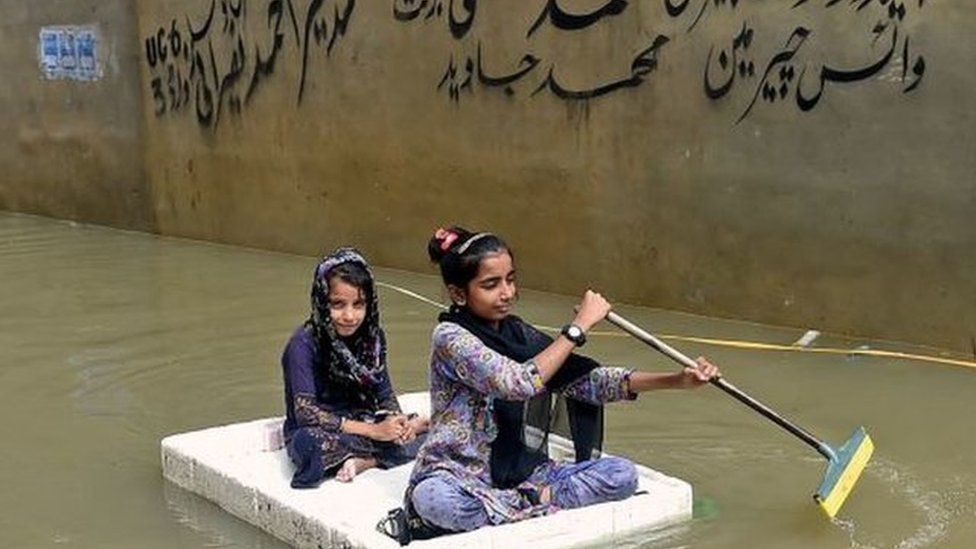
-
-
-
3 November 2022
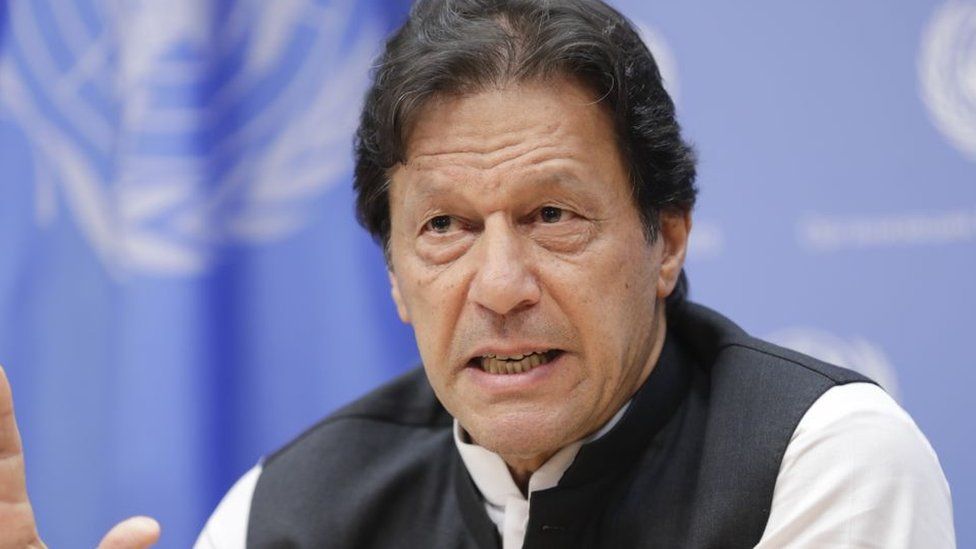
-

